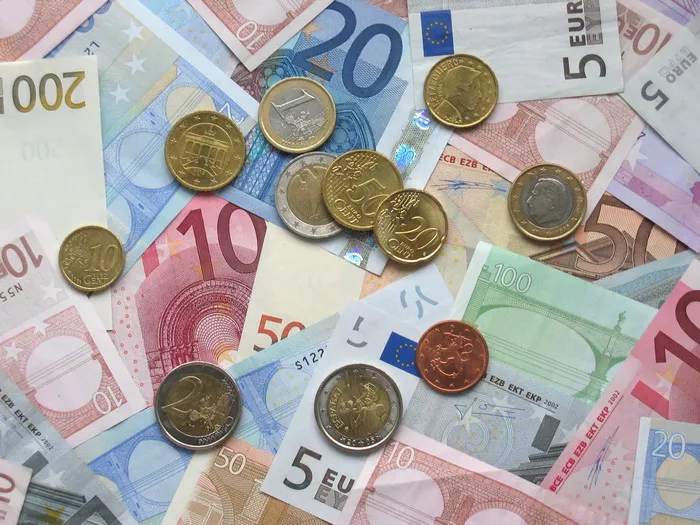Currency exchange is an integral part of international travel, enabling individuals to convert their home currency into the local currency of their destination. Whether you’re jet-setting for business or leisure, understanding the dynamics of currency exchange can save you significant costs and hassle. In this comprehensive guide, we’ll delve into the basics of currency exchange, explore the factors affecting its costs, and unveil the cheapest ways to convert your currency.
Understanding Currency Exchange Basics:
What is Currency Exchange?
Currency exchange involves converting one country’s currency into another based on the current exchange rate. Travelers engage in this process to acquire the local currency of their destination, facilitating transactions during their stay.
Why Do Travelers Need to Convert Money When Going Abroad?
When traveling abroad, your home currency may not be accepted for transactions. Converting your money into the local currency allows you to make purchases, pay for services, and navigate financial transactions seamlessly.
Introducing Exchange Rates:
Exchange rates determine the value of one currency relative to another. These rates fluctuate constantly due to various economic factors, including inflation, interest rates, and geopolitical events. For example, if you’re traveling from the United States to Europe and the exchange rate is 1 USD = 0.85 EUR, it means one U.S. dollar is equivalent to 0.85 euros.
Illustrating Currency Value with Examples:
Imagine you’re buying produce at a grocery store in a foreign country. If a bunch of bananas costs 2 euros, and the exchange rate is 1 USD = 0.85 EUR, then those bananas would effectively cost you $2.35 if you’re exchanging U.S. dollars. Understanding this concept helps travelers gauge the affordability of goods and services in different currencies.
Factors Affecting Currency Exchange Costs:
Exchange Rates:
Exchange rates vary among different currency exchange providers. It’s essential to seek out favorable rates to maximize the value of your money. Online platforms and financial institutions often offer competitive rates compared to airports or hotels.
Fees and Commissions:
Banks, exchange counters, and other providers may impose fees and commissions on currency exchanges. These additional costs can significantly impact the overall expense of converting money. Be sure to inquire about any fees before conducting transactions.
Timing:
Timing plays a crucial role in currency exchange. Exchange rates fluctuate throughout the day based on market conditions. Travelers can capitalize on favorable rates by monitoring fluctuations and timing their exchanges strategically.
Cheapest Ways to Convert Currency:
Bank or Credit Union:
Banks and credit unions are often the most cost-effective places to exchange currency. Before departing the U.S., visit your bank to exchange dollars for the currency of your destination. Many major U.S. banks offer foreign currency without additional fees beyond the exchange rate. Additionally, banks may provide same-day exchange services, either in cash or through online orders.
Avoid Airport and Hotel Exchanges:
Exchanging currency at airports, hotels, or currency exchange counters should be avoided due to higher fees and less favorable exchange rates. While convenient, these locations often impose substantial surcharges, resulting in diminished purchasing power.
In-Network ATMs:
Withdrawing money from in-network ATMs affiliated with your bank or financial institution can be a cost-effective option. While some ATMs may charge nominal fees, they typically offer competitive exchange rates compared to traditional exchange services.
Online Exchange Bureaus:
Online exchange services provide convenience and competitive rates for currency conversion. Platforms like TransferWise, Revolut, and CurrencyFair allow travelers to exchange currency digitally, often with lower fees than traditional brick-and-mortar establishments.
Debit or Credit Cards:
Using debit or credit cards at foreign ATMs can be a viable choice for currency conversion. Many financial institutions offer competitive exchange rates and may waive foreign transaction fees for certain cardholders. However, be mindful of potential ATM fees imposed by both your bank and the ATM operator.
Tips for Smart Currency Exchange:
Plan Ahead:
Exchange some currency before your trip to avoid last-minute fees and ensure you have cash on hand upon arrival at your destination.
Research:
Compare rates and fees from different currency exchange providers to identify the most cost-effective options for your needs.
Be Aware of Minimum Amounts:
Some banks and exchange services may impose minimum transaction amounts, leading to additional fees for smaller exchanges. Plan accordingly to avoid unnecessary costs.
Keep Track of Exchange Rates:
Monitor exchange rate fluctuations using reliable sources to identify optimal times for currency conversion and maximize savings.
Safety Considerations:
Carrying Large Amounts of Cash:
Exercise caution when carrying large sums of cash, especially in unfamiliar environments. Consider using alternative payment methods such as traveler’s checks or prepaid travel cards for added security.
Inform Your Bank:
Notify your bank or financial institution about your travel plans to prevent potential card blocks or security holds on your accounts while abroad.
Conclusion:
Navigating currency exchange can seem daunting, but with careful planning and awareness of your options, you can minimize costs and maximize value during your travels. By utilizing cost-effective methods such as banking services, in-network ATMs, online exchange bureaus, and strategic card usage, you can unlock significant savings on currency conversion fees. Remember to plan ahead, research your options, and stay informed about exchange rate fluctuations to make savvy financial decisions wherever your adventures take you. Safe travels and happy saving!


